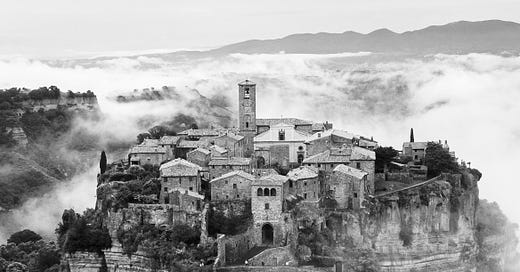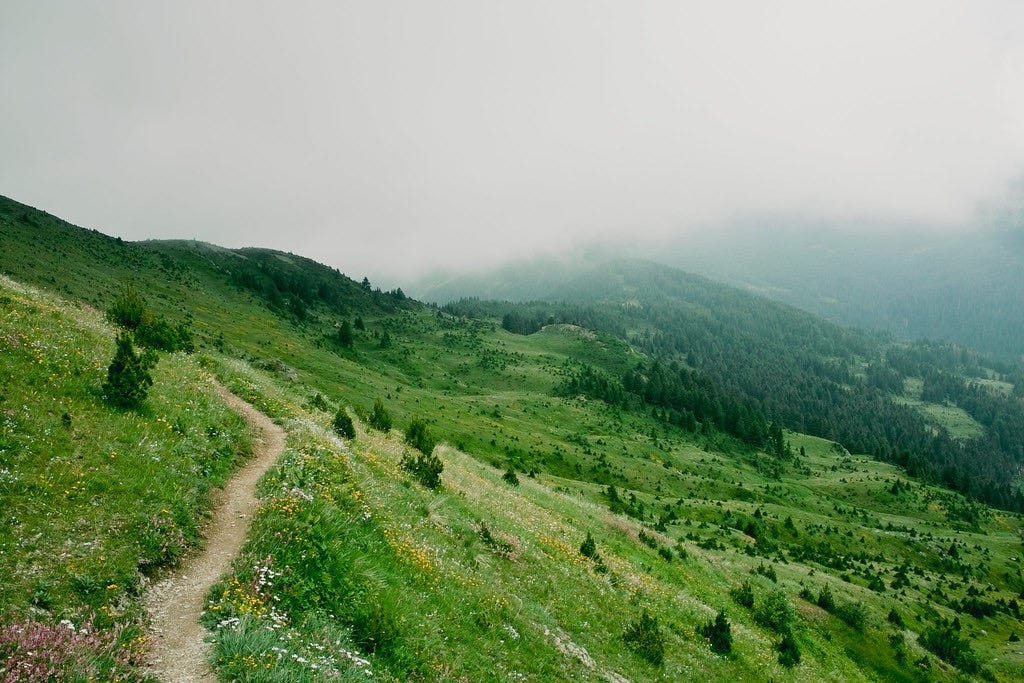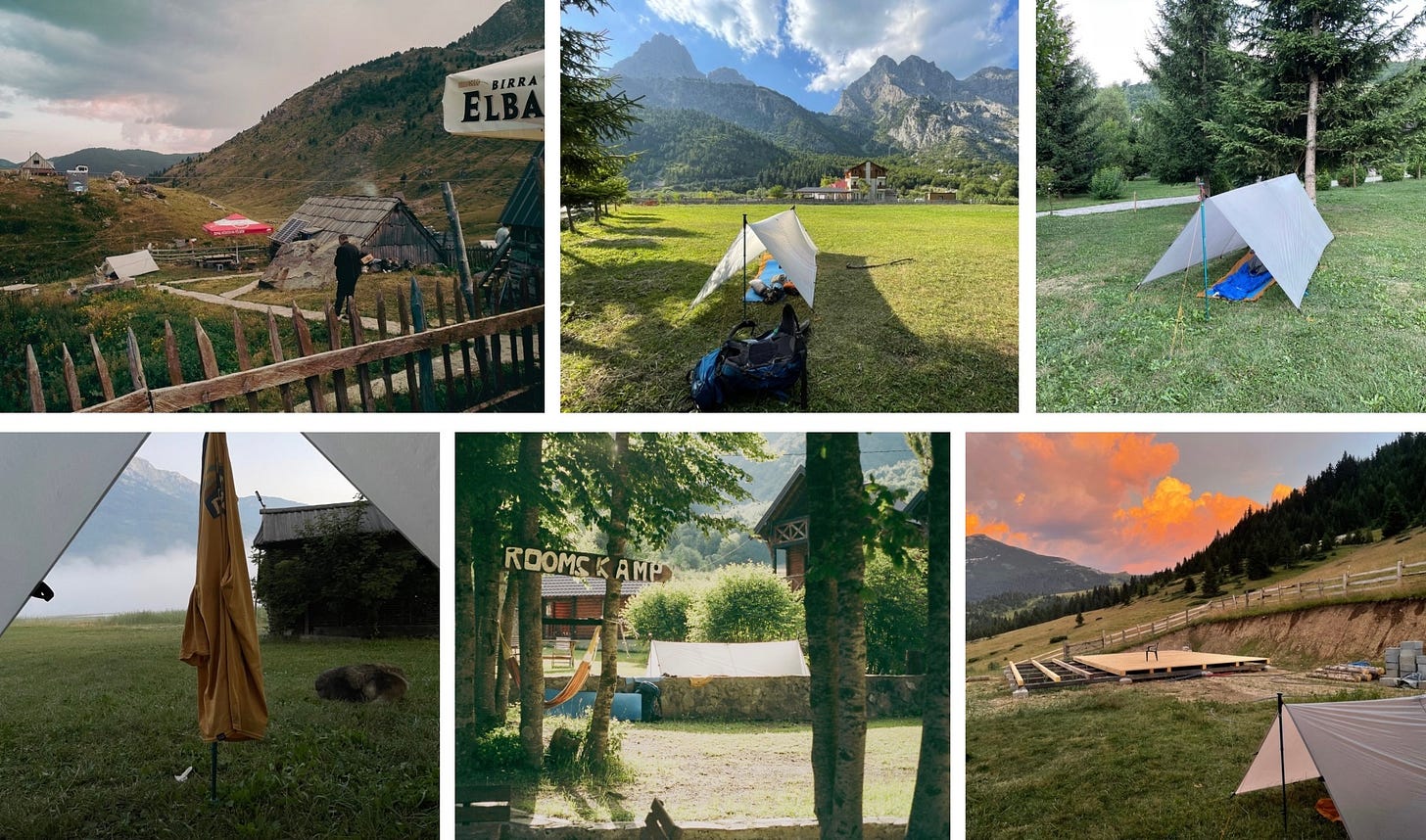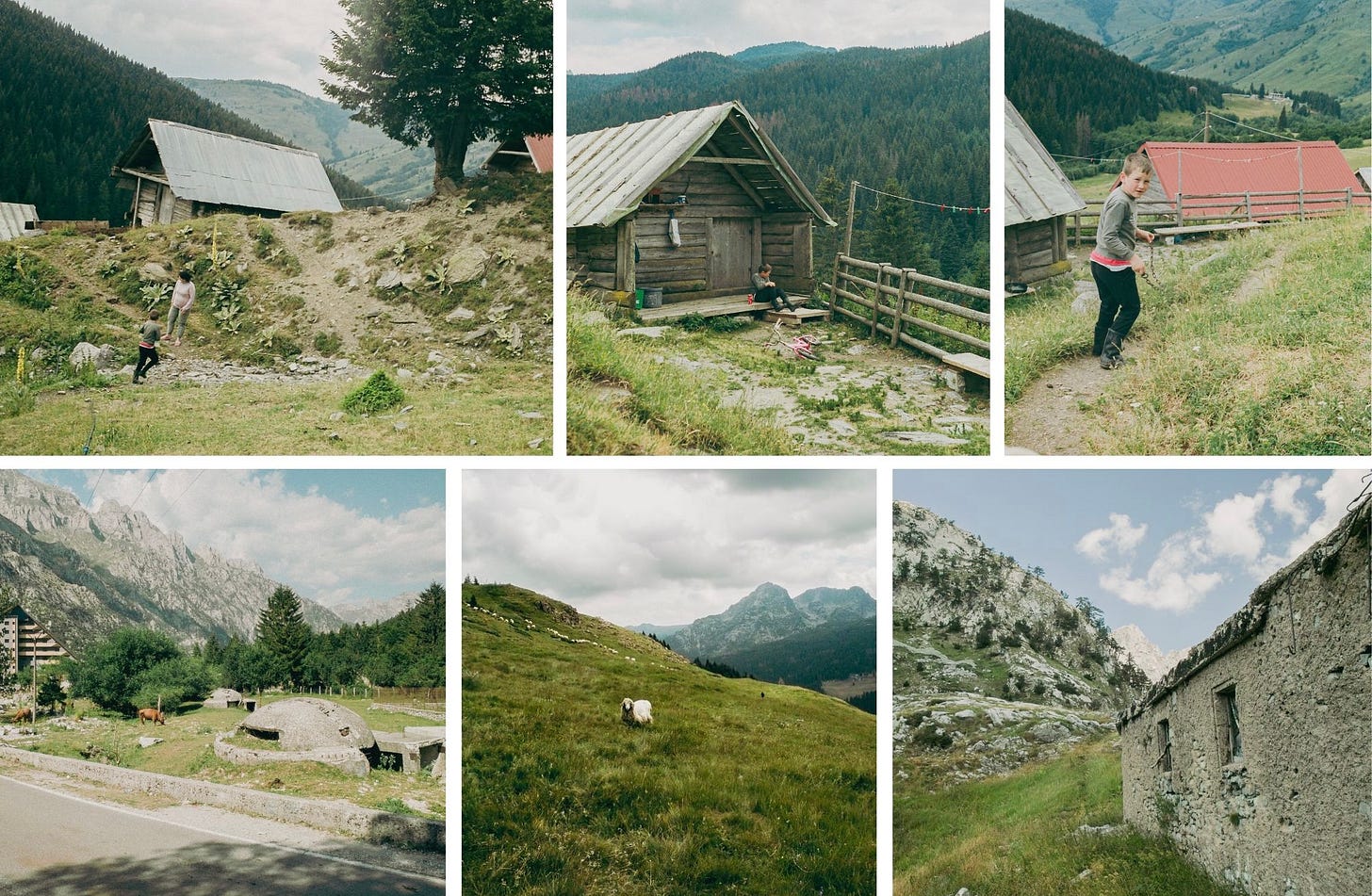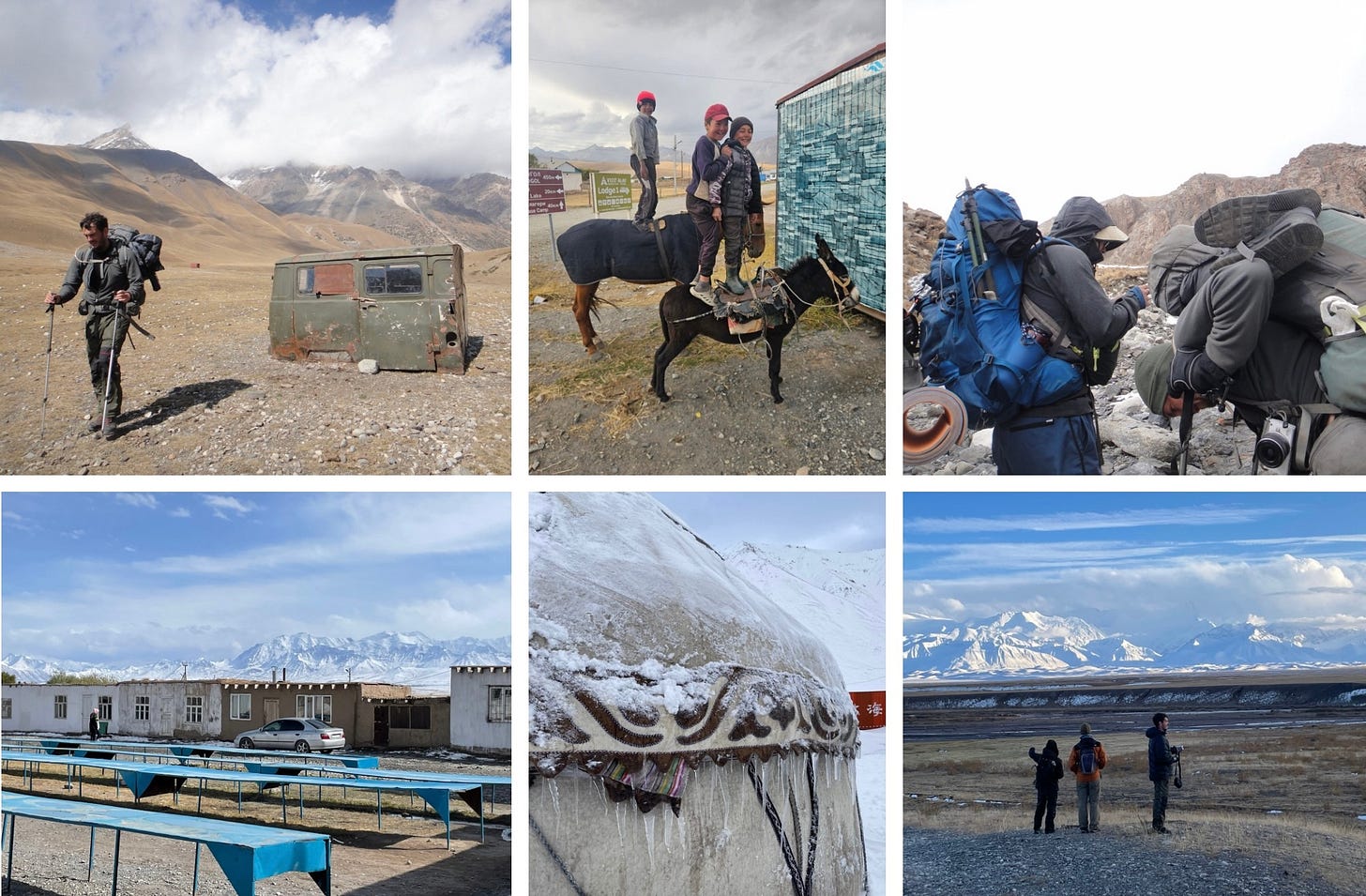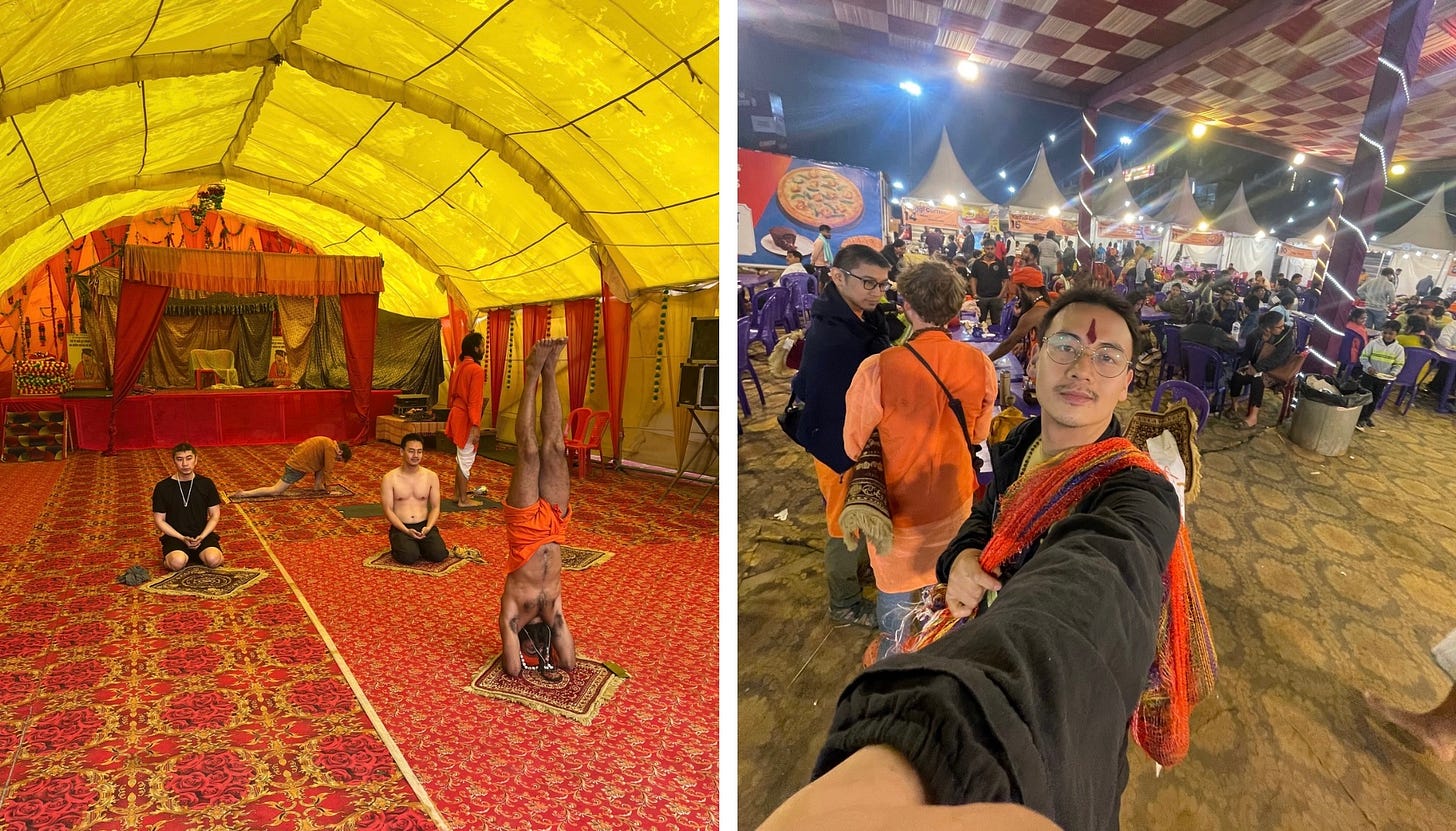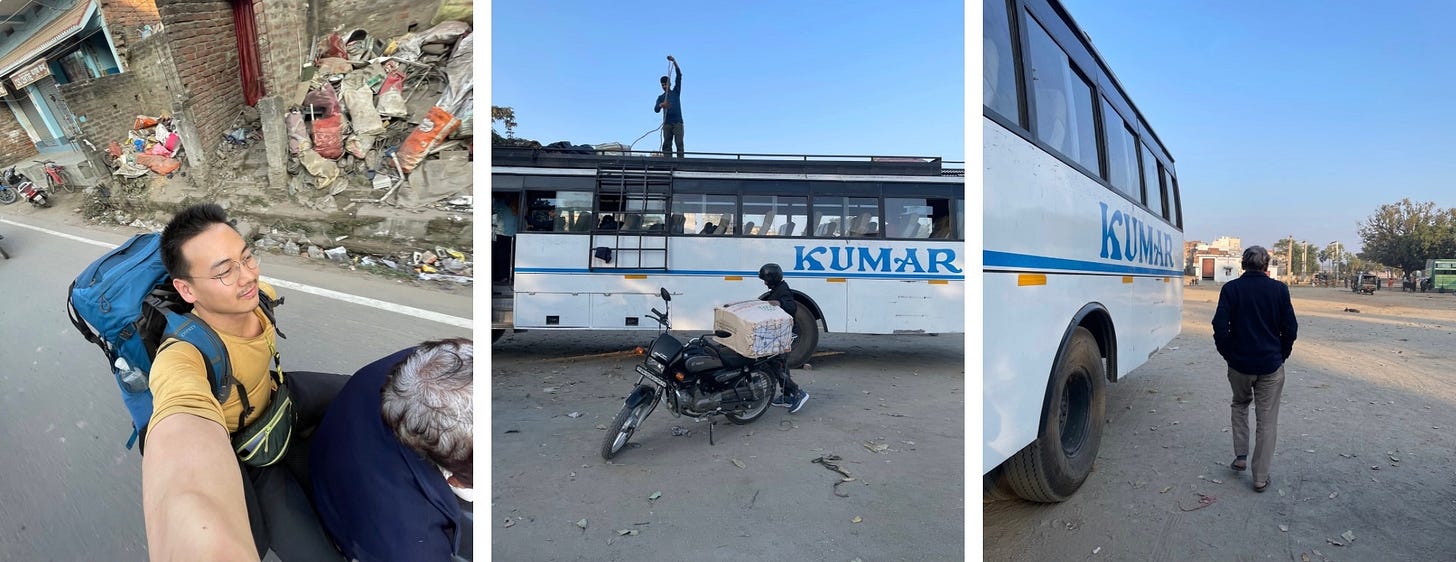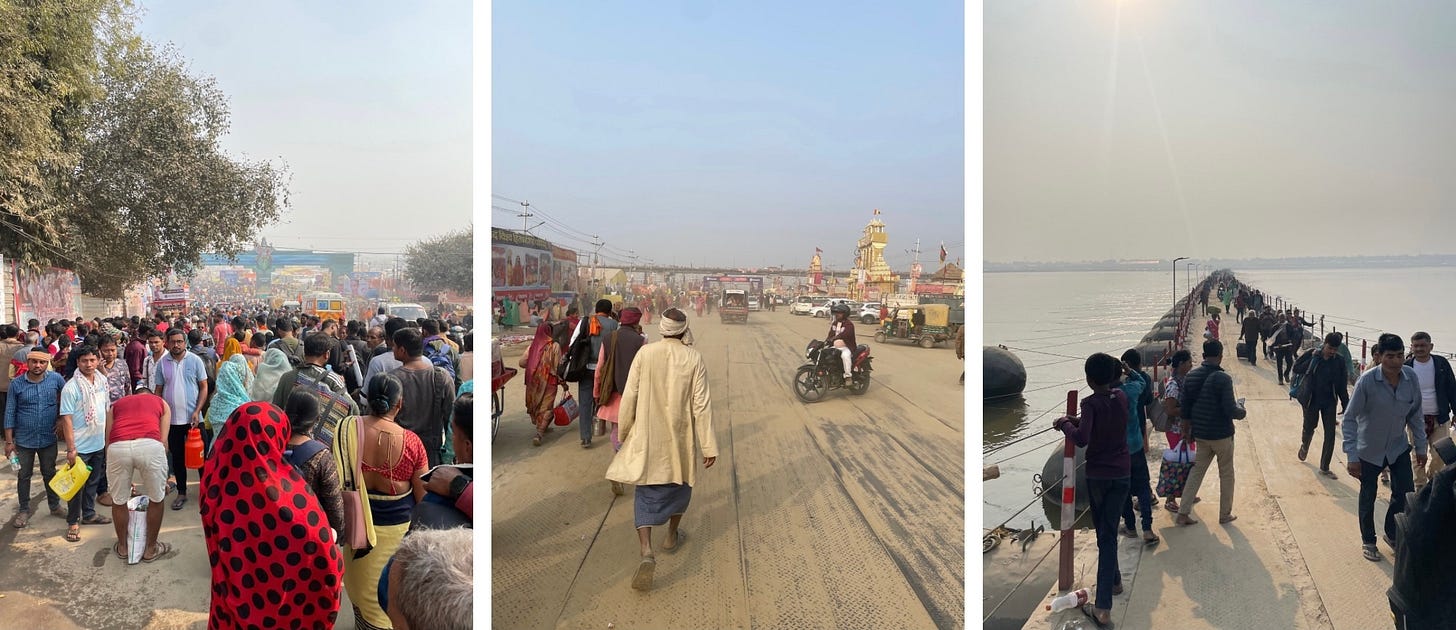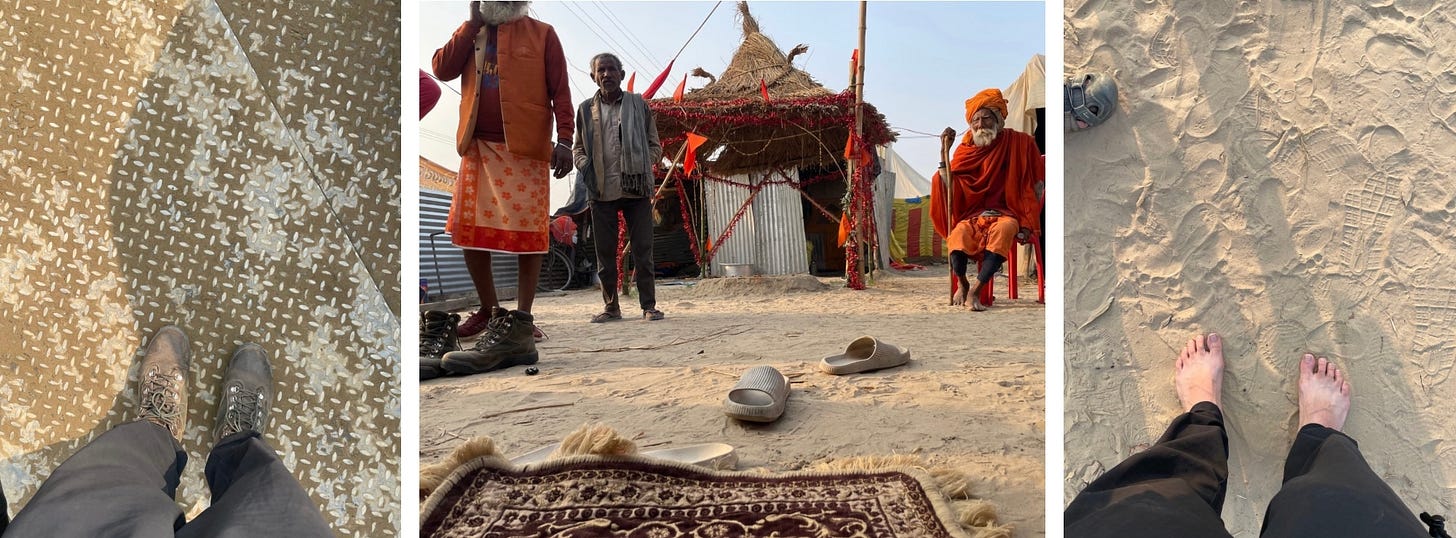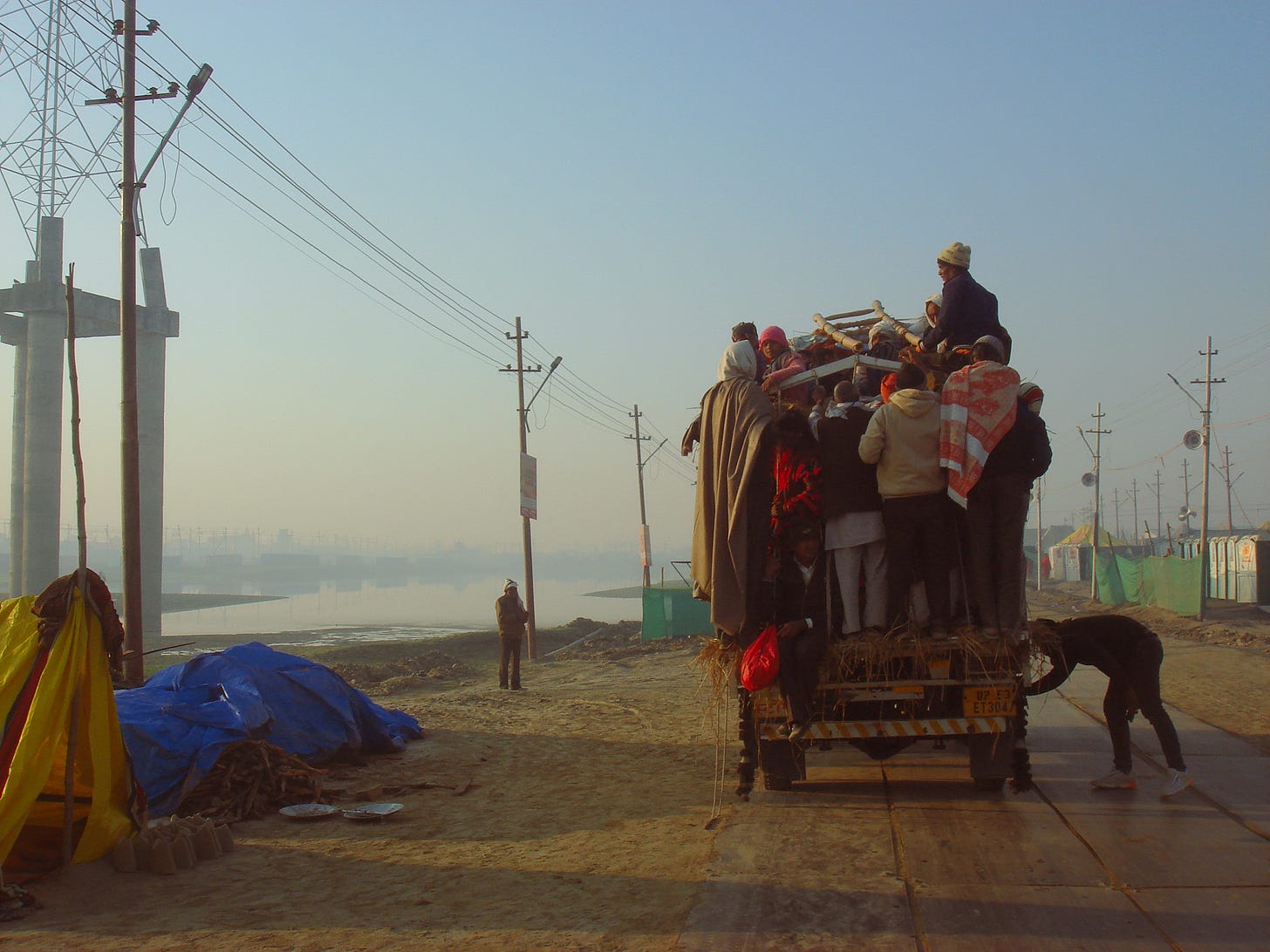The scent of lavender washes in from the open window, bathed in soft light and the morning breeze. I’m in Italy now. Back to the place where it all began: Civita.
Two years ago, the warmth of these stone walls and of the people that resided within them taught me what it means to experience a place. My time there provoked this question of how to convey an “incalculable experience,” which inspired the start of my writings. You can read my first post here: Dante Was Wrong.
With my flight back to the U.S. in just a few days—I’m met again with this challenge of how to convey my experiences from this past year to friends and family back home. How do I even come close to capturing everything that I feel is now a part of who I am? Last week I sat with a friend in Seoul swiping through photographs and stories for over an hour. By the time she had to head out for an appointment, we’d only covered the first few months of the year. Again and again, I find myself repeating: “Summer in the Balkans, a month and a half in Central Asia, 3 months in Nepal, 4 in India, a month in Japan…”—as if somehow by emphasizing the time spent in each country, people might understand the depth of my impressions. But through the corner of my eye I can see that my audience’s attention has wandered1. There’s just something lost in translation. It’s easier almost to just write—to just be a boy with some thoughts and conversation—leaving gaps for you to fill and find meaning.
Let’s try that.
I first set out on this year of travel hoping to discover the moments that could only be experienced through unrestricted time. These are moments that cannot be planned in the typical sense of “being scheduled.” Rather—the planning comes from altering yourself such that when these moments cross your path—you recognize them for what they are.
Coming into this year I was a chronic over-planner. I once won a travel grant in undergrad, where in my application I had each day planned out to the hour (complete with gas stations and rest stops). But the detriment of this style of planning is that by essentially deciding what your experience of a place will be, before you even arrive, you close yourself off to the possibility of letting yourself be changed by a place and its people. I desperately needed to renegotiate my relationship with risk and uncertainty. So while staying with a friend in Bulgaria, I decided to embark on a 14-day solo trek, tracing a nascent hiking trail through the war-torn landscapes of former Yugoslavia. There were shepard villages and small towns scattered along the route, but I intentionally left half of the nights unplanned with no accommodation booked—forcing myself to figure out where to stay as a spur-of-the-moment sort of exercise. Just in case, I brought a makeshift tent fashioned out of a piece of tarpaulin, paracord, and trekking poles.
Besides redefining my relationship with uncertainty, I hoped that spending time in these regions could reveal insights as to how people have rebuilt in the post-war years and how their longstanding traditions contend with notions of progress and modernity.
The Balkans: June-July, 2024
Seagulls flew abreast to the ferry, soaring, diving, and dodging for morsels of bread that were held in the outstretched hands of children. Their hair ruffled and tossed in the wind, lifted alongside the laughter of their mothers filming from behind. The sun shone on the sea, turning water into diamonds. That night, dinner was met with a warm handshake and crinkled eyes that smiled with familiarity. In the bazaars, mountains of Hasbro gummy bears were piled high alongside basins of viagra tea and potato spice: modern and ancient worlds colliding. The next day, I sat in the stone courtyards of a mosque, sketching. The minarets always came last, with my pinky braced against the edge of the page.
Storm clouds gather above. A suited man riding past on a dilapidated bicycle turns to me and points to the clouds.
“Storm. Danger.”
I wave him off and continue making my way down the dusty road. Thunder rumbles overhead, punctuating the murmur of the summer stream. Seated under the overhang of the local information center, I watch the sidewalk darken with raindrops. The stray puppy in the corner scratches its ear, gnawing on a plastic bottle.
There’s something about the air. You feel it in your brain. A slight smell that reverberates through you, washing away the bitter taste of petrol. I flag down the bus —a modified sprinter van—and we take off racing into the canyon. The driver taps his horn before turning a sharp corner and I catch glimpses of raw tunnels of blasted rock through the curtained window. Another passenger reaches behind him to pull at the curtains, opening up a better view of the sheer mountain cliffs. I am deposited on the side of the road 30 minutes later, next to a pile of gravel and concrete telephone poles that are nestled in a bed of thistles. A young boy herding goats crosses the road.
“2 kilometers,” he says, pointing up the hill. As I begin my walk via the newly built road, I let my thoughts drift to my arrival in Peja that morning. It’s Balkan Time, I write in my notes, thinking of the train conductors that leaned against the thin metal railing by the train tracks, sipping from small cups of coffee.
The path takes me through evergreen forests with glimpses of mountains in the distance. We reach a lake, nestled in a small valley and surrounded by lush grasses. I crouch to watch the salamanders swim: they wriggle their tails to propel themselves through the water, tucking their little feet tight against their bodies. When they come up for air, a portal opens. With each ripple, the sky turns into a Monet. Stones and half-submerged logs become a bridge between worlds.
A light mist collects on the water’s surface. I continue onward, plucking some wild dill and kneading it between my fingers, savoring the flavors of earth and sun. A small shelter, sign post, and chirping of birds marks the entry into Montenegro. The land continues. Rolling, dappled green hills specked with yellow freckles and purple bruises of flowers.
After a dinner of burek and potatoes, I ask the waiter if I could camp behind the restaurant. Two half-hitches and a few tugs later, I’m satisfied that my contraption will hold. I settle off to bed, but sleep is hard to come by—the dogs barking through the night make me wonder if there was danger lurking.
The trail leads me down a dirt path that winds through a stand of woody pines. Down the hill, a large dog chained to a wooden post leaps up, barking and snarling at me. I quickly pass, following a wood fence to a clearing. A small sign—marker on wood—is nailed to the fence. A menu.
“Would you like a drink?” Asks a woman, appearing from behind the fence. A young boy peeks out from behind her faded pink sweater.
“Do you have beer?”
They nod and I follow, guided by a fluffy white dog caked in dirt, to a covered table overlooking the farm and valley. The woman sets a beer on the table and takes a seat.
“What is your name?” I ask.
“Anissa, Hamza” she says, pointing to herself and then her son. Cows, sheep, and goats roam the pens around us.
As Anissa and I exchange comments, I watch Hamza (7yo) play — bouncing between herding cows into a barn, attempting to fix the chain on a small pink bike that was missing a seat, and watching television in a back room. Anissa shoves some logs into the wood-fire stove. This was their summer farm, where they’ve been coming for the past 17 years—ever since she married her husband. They live here for 6 months of the year, and each winter they walk their flock for five hours back to Plav (the nearest city). She learned English in her school days and from conversations with tourists. The shepard I saw earlier walking the hills was her older son (16yo). Cell service is only available up in the mountains, so he goes up there to watch TikTok and play games on his phone while herding sheep. I ask what they do with the sheep. They are kept for milk and meat, she says. For some reason, wool doesn’t sell anymore.
Anissa brings out a plate of cheese, tomatoes, and freshly baked bread, explaining that the bread was made with local wheat, salt, water, and baking powder.
“Falimenderit?” I say, after finishing the assorted foods and drink.
“Here it is Hvala. Hello is Zdravo.” Hamza tilts a coke can near vertical so that the final drops spill into his open mouth. He then looks down the opening of the can, bringing his eye closer to make sure that he had gotten every last drop.
Anissa brings out a small treat: a thin crepe with jam, before returning to her seat across from me. She cradles her head in her hands and leans against the back rest of the bench, turning her gaze toward the valley—where the sound of hammering rings into the afternoon.
I hold back the urge to ask about the war.
What is it about the texture of a dirt road beneath your feet
and being able to see stars from your window at night.
Why is it that the places where I have spoken the least
feel the most like home.
Central Asia: September-October, 2024
Hello again. I’m caught in a snowstorm in the south of Kyrgyzstan, trying to stay warm in a yurt camp. A soft crinkle of snow on tarpaulin and the rhythmic drip and hiss of the coal burner keep me company.
It’s now a few days later; my companions are ill so we are taking a rest day in a small village. From my window, I see the rusted remains of a car and diesel tank surrounded by golden fields. The snow-coated mountains of the Pamirs rise up in the distance.
A few days later again, I’m in the village of Arslanbob — home to the largest walnut forest in the world. Flies buzz against the glass of the corridor windows. A birch tree grows just outside, its yellowing leaves trembling with the weight of small sparrows jumping around its branches. Their white feathers blend against the paleness of the gnarled trunk. Up the hill, a metal roof sits rusting atop a frame of white brick and falling stucco. Hopefully I can finish writing today.
These past two weeks have taught me a lot about letting your plans change. There’s something special about the sense of freedom that comes with not knowing where you’ll be. My unplanned encounters taught me so much about how to travel, live, and be. And I think that this is who I am. I crave freedom and the wind. The warmth of light on my skin. I am not so complicated.
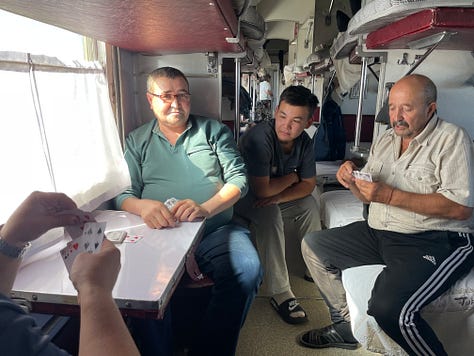
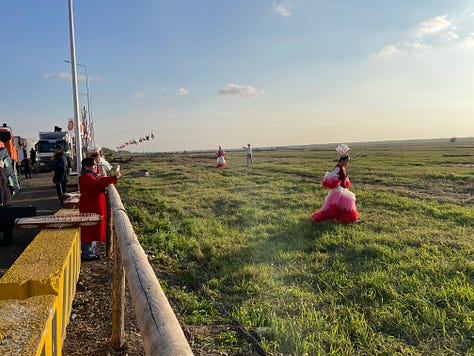
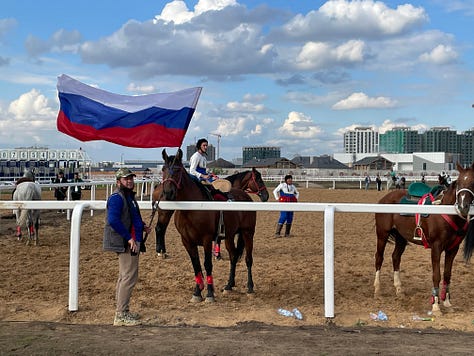
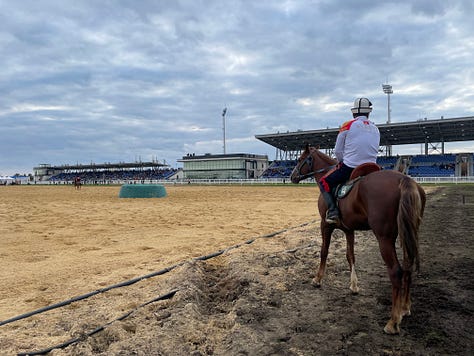
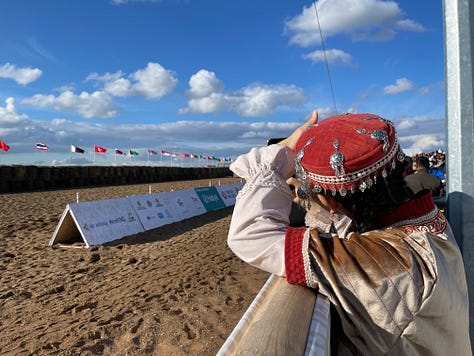
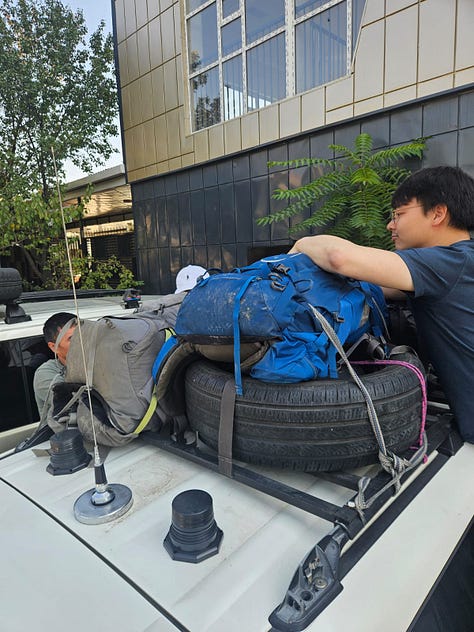
India: Jan-April 2025
Candles flicker on a silver tray, tracing slow circles in the air. Wisps of smoke linger like a winter’s breath, caught by a fluorescent sun.
“Hare krishna. Hare hare krishna.”
I kneel and lower my head toward the earth, holding my breath as the cold touch of beads trace a circle around my neck. The chanting stops. The guru murmurs a name. I feel the press of a coarse finger on my forehead, cold against my skin.
I rise slowly, my leather boots bouncing in the sack against my back.
What is hare krishna?
Just a day ago I was seated behind a stranger on his motorcycle, savoring the rush of wind through my hair and the feeling of adventure in my heart. My train to Varanasi had been canceled earlier that day, and the replacement bus I booked had no pick up point listed. I took a rickshaw to the main overpass and started asking people on the street for help. But with each conflicting answer, and my phone calls to the bus operator met with a string of Hindi and silence, the pressure in my chest was beginning to build.
I poke my head into a small shop filled with old electronics, hoping that someone might be able to point me in the right direction. The shopkeeper looks up and I gesture to my phone, asking if he knew the location of the bus stop.
“There is no bus stop here,” he says, zooming in on the ticket on the screen.
“I know, do you know where I can find the bus?”
The shopkeeper pulls out his phone and dials the number of the bus operator. They speak in Hindi for a few minutes, and he writes out a script on a slip of paper.
“15 minutes, that way” he says, handing me the slip and pointing in the opposite direction that I had been walking. I stare back blankly, thinking about the conflicting directions that I had been given earlier.
“I can take you if you want?”
“Are you sure? That would be really helpful.”
He gets up from his desk and walks to a blue motorbike parked by the road. I clamber on, bracing myself and my backpack on the seat behind him.
The bike rumbles to a start and we take off—cutting through the main road and speeding down a side alley into the unknown.
I had no idea where we were heading, and whether I would get to where I needed to go. But the wind felt good against my face and the sun was setting silently from behind the maze of buildings, casting long shadows that reached for us from across the fields.
A few kilometers later, we find the bus parked in a dirt lot. A worker lathers water onto the windshield from a soapy bucket. Another ties packages onto the rooftop rack. I reach into my bag, hoping that a handful of bills might be able to convey even a little of my gratitude. He refuses my money, shakes my hand, and departs without a word. And I realize just how powerful kindness can be.
The next morning, I was on a train to Prayagraj, the host city for the Kumbh Mela: a 1-in-12 year Hindu pilgrimage festival that also doubles as the largest gathering of people in the world. Accommodation sold out months ago, but I figured this was what I had been working toward: building enough tolerance to uncertainty that I could crash the biggest gathering on earth with no idea where I’d sleep.
From the station, I join the streams of pilgrims dressed in lehengas, jeans, and t-shirts alike. Their feet pound the asphalt, clad in sandals, sneakers, or nothing at all. As we near the banks of the Ganges, the asphalt road is replaced by sheets of metal laid out over the sandy river bed. Concrete buildings are replaced by encampments crafted from corrugated metal, wood, and tarpaulin. In the distance, pontoon bridges made from gigantic metal vessels stretch across the tributaries. The scale of the Ganges is so massive that it takes nearly two hours to walk from bank to bank.
Music and voices ring out from up ahead. I spot a group of foreigners and locals gathered beneath a small shelter made of tarp and straw, forming a drum circle. They gesture for me to join them. I take off my boots and scoot under the shade, grateful to be out of the sun. Someone hands me a small cup of masala chai.
The foreigners are part of a congregation led by Swami-ji, a wandering ascetic from Kerala. After some conversation, I ask if they might have a space for me to stay. When the singing subsides, one of the foreigners approaches and kneels beside the swami, whispering something in his ear. Swami-ji closes his eyes and murmurs, swaying back and forth. A few minutes later, the foreigner returns.
“Ok, he says you can come with us.”
After another round of singing and drumming, the group prepares to leave and I get up to join them. I bow my head to Swami-ji, expressing my thanks and introducing myself. The swami looks at me with wide, piercing eyes.
“I had a feeling someone would join us today.”
I fetch my boots and quickly put them on.
“What are you doing! This is leather. You cannot wear this! You sell to me. I will buy for 10 times the price. One lakh! I will give you one lakh for them.”
I freeze. Ugh, stupid! I knew that Hindus worship cows but didn’t realize that it extended beyond not eating beef. I apologize and quickly take off my boots and socks. The swami calms down a little. He grabs an old vegetable sack from behind a tent and gestures for me to put them inside.
“Good ventilation” he says.
The group moves quickly and I pick up my pace—not wanting to jeopardize my chance at having a place to stay. Beneath my bare feet I can feel the coarseness of the sand and metal, still radiating the heat from the sun. It’s an eclectic group. Just a few foreigners from the Americas and Europe. They carry small bags filled with strands of rope, rolled up vinyl posters, and small tasseled rugs.
The rest of the day is a blur:
A man screams “Long live Trump, long live Modi. India and USA forever” and proceeds to rant about Angela Merkel ruining Europe by turning it into an Arab country. He moves around the table and takes selfies with each of us.
We enter the Parmarth Niketan enclave and join the audience that has gathered under a massive tent. Religious gurus give speeches and people raise their hands to manifest a new BMW. AI-generated videos of muscular Hindu gods and thunderous music play out over giant screens. People come up to Swami-ji, touching his feet and taking photos with him.
Swami-ji leads us to a small temple within the enclave where a priest invites us to sit with him. We meditate next to a shiva lingam stone as the priest recites prayers. Every so often Swami-ji would strike his hands with a wooden flute for each mispronunciation. Apparently this stone was particularly holy.
Later that night, Swami-ji insists that I stay with him in his room. As he prepares cups of herbal tea, he tells me about the temples that his followers are building and that he could use the help of someone like me. I smile and nod my head.
“Do you know Krishna?”
While the other devotees lounge around the camp, waiting for Swami-ji to return from his meetings, I decide to walk to the Ganges. A gentle wind tugs at my shirt, its song drowned out by the honking, loudspeakers, and civilization around me. Last night as I was trying to fall asleep, Swami-ji told me about vibrations from the universe and how the crises of faith/environment/humanity that characterize our modern era, are a result of humans losing their ability to feel and connect with those vibrations. I reach the waters and look around at the expanse of trash and muck that flow in from the tributaries and sewage pipes; at the smoke billowing out from piles of trash burning by the road; and at the dust and fumes from vehicles rushing past.
I look around and think none of this is holy.
How can this be holy, when we treat our waters this way? The streams and canals in Bodh Gaya, Kathmandu, and Mumbai—so clogged with bottles and bags of trash. So badly that the rivers stink. Do they not meet and flow into the same ocean? Are the waters not all the same? How can something be holy, when this is how we treat it? I think back to the servants that Swami-ji ordered and traded around, to the rickshaw driver that he berated and made wait for hours. What is holy, when there is a separation, a hierarchy, a caste? When we still treat people this way?
But listening to my friends sing about life. Speak on behalf of land and community. Is that not spiritual? Are they not priests of their own world?
Later that night, food poisoning strikes. I spend the next day recovering in the tent, chatting with a devotee from Iceland. He had read about the Kumbh Mela back home in Columbia, and more recently quit his engineering PhD in Germany to work with ecovillages in Iceland. Our conversation drifts between spirituality, culture, and society.
God is not in a temple, speaking from a sacred fire. It is within him. Leading him.
Those people with skeletal arms that are frozen above their heads, or seated naked around a fire with coatings of ash around their bodies. They are practicing ancient forms of yoga. The term yoga comes from “Yog”—to bind. To connect with the divine. This is done through suffering and overcoming the fear of suffering, as taught by the Buddha. It is an ancient Sanskrit practice.
India is a land of spectacle and contrast. In these collective societies, religious leaders serve to “siphon” off the pressure within these communities. This would never work in America or Europe he says—people are too worried about their own lives. A guru here would basically be like a homeless person there.
We take a walk down to the river.
This is nice. A glowing red sun. Not much haze. The lights in the city turning on at 5:30. People out laughing and splashing and chanting softly. I can get used to this. People selling chai. People putting clothes back on. The peddler asking to see my photo. Shadows of people moving. Beautiful. This is beautiful.
What a place. We wander and walk, joining queues for prasad and eating plates of roti, rice, and other sweets. We wander down to Triveni Sangam. I point out an anchored boat and we wade into the sand and water and climb aboard.
River, bubbles, and ripples flow past us. The chanting, honking, and din of the city are off in the distance now. Their melody lifts and sways, weaving between the sound of car horns and the sound of construction. The city, this sea of gridded lights, stretches all around us. Reflected in the waters. I lie down. The light breeze feels cool against the dampness of the air. I feel the wet sand between my toes. Jupiter smiles at us from above. The city is singing.
A figure in the distance wades across the water and sits beside us at the helm of the boat. I watch out of the corner of my eye as he downloads google translate onto his phone. He taps me on my shoulder and holds up the phone. “Why are you in India?” I point to the waters and settle back to my nap. He presses no further.
On the way back, we hop into the back of a truck and watch the world move past us. People on bikes and tractors laugh and wave. I think I get it now.
Early the next morning, I join the pilgrims for their morning bath. The air is cold, the water colder. But I take the plunge. Dip three times, then raise the waters above you.
Much love to the friends that have been a part of this journey, both abroad and back home. I may have exaggerated people not paying attention for dramatic effect. I tried to experiment a little with the style of writing (description, dialogue, and journal excerpts). Let me know which one you enjoyed the most.

